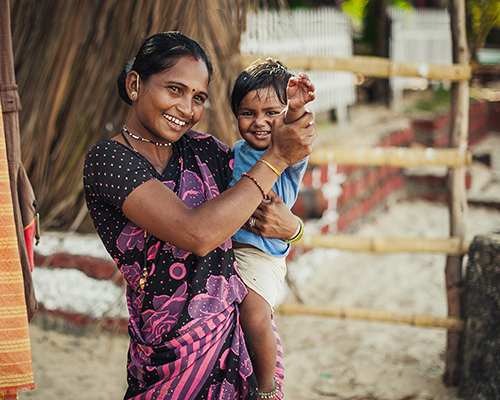Breaking the Taboos: Debunking Menstruation Myths and Celebrating Inclusivity

Celebrating firsts is always special: your first cricket match victory, first salary, first car, or your child’s first birthday. But when a girl takes her first step towards womanhood in some parts of the world, that special moment is wrapped and sealed in a black plastic bag.
Today, when efforts are made to promote women’s empowerment and break down patriarchal norms, it’s baffling that menstruating women continue to be bogged down in the name of tradition in some parts of the world. In a country like India, where knowing everything about one’s family members is considered the way of life, talking about periods is still a taboo.
A study conducted by TISS between 2000 and 2015 showed just how deeply rooted these notions are in India. Evidently:
- 8 out of 10 girls are not allowed to enter religious shrines during their periods,
- 6 out of 10 girls can’t even touch food in the kitchen, and
- 3 out of 10 are made to sleep in separate rooms.
These are common experiences in a country like India. Their universality makes one wonder why these myths keep hanging around. Well, the answer lies in how deeply internalized these ideas are and what we’re taught growing up. So, let’s get to the bottom of these myths and figure out how they affect our understanding of menstruation.
-
Menstruation is dirty and dangerous.
This couldn’t be further from the truth! Menstrual blood is regular blood and tissue. Common sense dictates that there is nothing harmful about it. However, practices such as Chhaupadi continue to be prevalent in many parts of India.
Chhaupadi refers to a menstrual exile, a tradition of untouchability prohibiting menstruating women from cooking and forcing them to sleep outside the home to avoid impurity seeping inside the home. In Nepal, some cultures perpetuate the idea of period blood being so impure that in order to atone for their “sins,” menstruating women and girls purify themselves through water, prayer, and intermittent fasting.
-
Menstruating bodies produce a harmful poison.
Can you believe that in the 1920s, some Western scientists debated the existence of a poison called “menotoxin” produced by a menstruating body?
The theory was based on the ancient belief that period blood is the material from which a fetus is made, the expulsion of which refers to a ‘matter out of place,’ making it a danger to society. The frenzy around such a “theory” extended to the wilting of flowers, death of insects, or crop infections by menstruating bodies’ touch or presence. Today, we know these to be myths perpetuated in the name of science.
-
The beginning of menstruation marks the ripe old age for a girl’s marriage.
By marriage, the implication is that a girl is ready for everything that accompanies marital life. This puts young girls at risk of abuse and exploitation. Just because a person starts menstruating doesn’t mean she’s ready for such significant changes, as it only indicates biological fertility, not mental or physical maturity.
It’s no surprise that pregnancy and childbirth complications are the number one killer of young girls aged 15-19. Such physically and mentally taxing life changes imposed on such young bodies and minds is nothing less than harrowing. The fifth National Family Health Survey (NFHS) also reveals that 16.3% of girls are married off before they even turn 18.
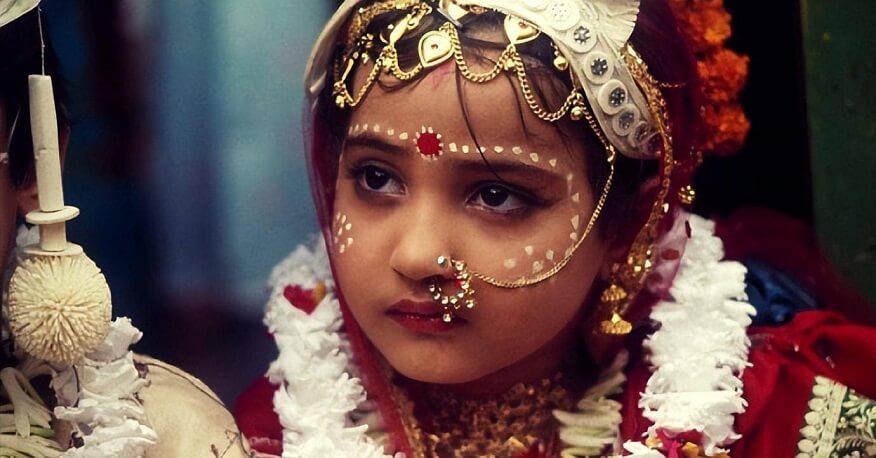
And it gets even worse – girls who start menstruating often have to miss school if they are allowed to go in the first place. This is because of a lack of proper menstrual hygiene awareness, leading to increased dropouts from school.
-
Menstruation limits women’s abilities, both physically and mentally.
This belief dates back to the 19th century and continues to persist today, with women being degraded and excluded because of their period. We know the restrictions put on women’s entry into religious shrines all too well.
It’s surprising to see that the term ‘hysterectomy’ – the removal of the uterus – is still commonly used despite its problematic roots. The Greek word ‘hystera’ refers to the ‘womb,’ and implies that madness stems from the womb. This only reinforces the misguided belief that a woman’s uterus makes her inherently unstable, especially during her periods.
-
Those who menstruate must deal with it on their own.
Calling menstruation a women’s issue poses a multitude of problems.
With greater acceptance of trans bodies, women are not the only people who menstruate anymore. And menstrual health is a human rights issue. It is at the centre of the way our world has managed to grow as much.
For us to call it a women’s issue is an evasion of responsibility, bordering on ignorance. Without the proper knowledge, resources, and tools to support safe and hygienic menstrual practices, we put millions of lives at stake. Therefore, both men and women need to work together to eliminate the discrimination that accompanies menstruation.
The lack of logic behind such beliefs raises questions about their longevity. Over time, women have spoken against the prejudice they face due to the stigma around menstruation.
Case in point:
Nirjhari Mukul Sinha v. Union of India case
In 2020, 68 female students at a hostel in Gujarat were subjected to a traumatic experience where they were made to remove their garments so the warden could check who was menstruating. She wanted to find out who broke the norms during their period since they were not allowed to enter the kitchen, the temple, or even touch their fellow hostellers.
This case brought forth the exclusionary practices women experience when they menstruate. It also brought into light just how consequential such discriminatory practices can be. Not only do they impose shame and stigma on something as natural as a body process, but they also directly impact girls’ and women’s emotional, mental, and physical health. The court ruled that guidelines be issued to deal with such exclusionary practices against women based on their menstrual status.
Programs around awareness about menstrual hygiene and breaking the stigma around the same have been in currency for some time now. Some of these programs include:
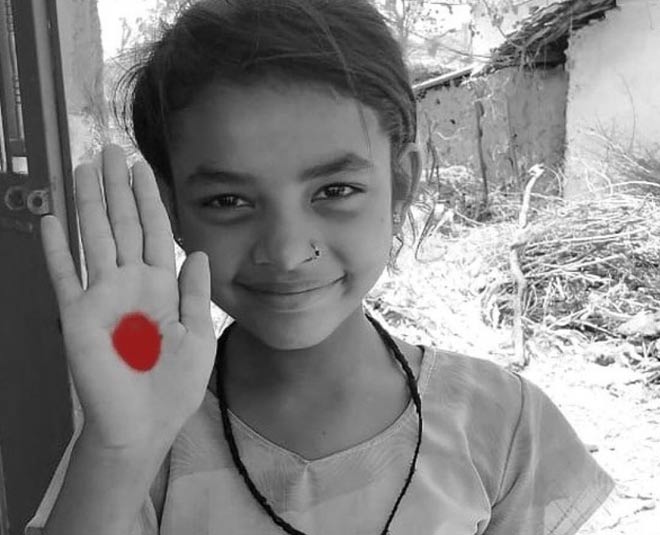
This initiative, led by UNICEF India, encourages people to post a photo of themselves with a red dot on their hand to symbolize the visibility of menstrual blood and raise awareness about menstrual health issues. By openly discussing menstrual health, the challenge is empowering women and improving menstrual health globally.
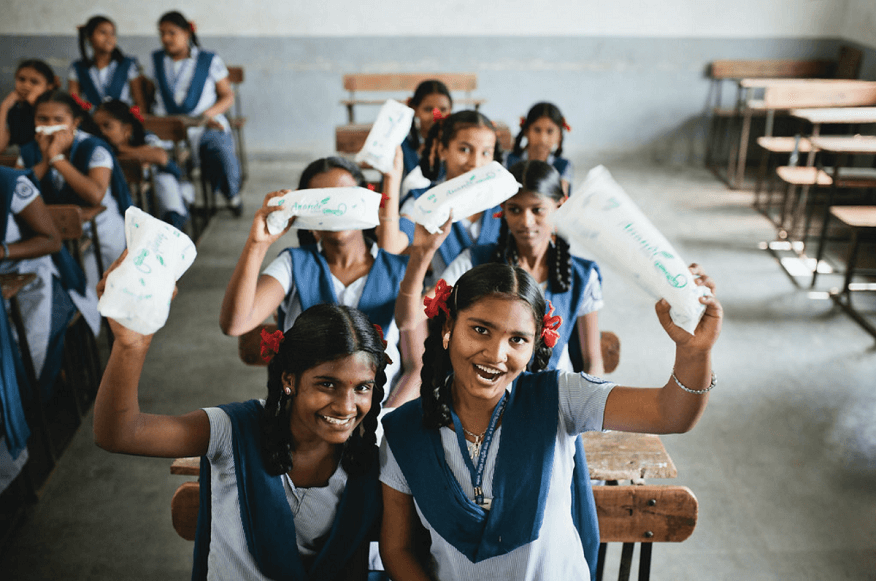
This initiative was launched by the Ministry of Health and Family Welfare in 2011 to promote menstrual hygiene in rural areas of India. Can you imagine not being able to afford a packet of sanitary pads, which costs just INR 32?
That’s a reality for many girls in India, which is why this scheme worked to make menstrual products accessible to everyone, not just a luxury for a few. Under this scheme, girls in 107 selected districts received a pack of six sanitary napkins called “Freedays” at a subsidized rate of INR 6.
-
#CutTheShame
Did you know that according to NFHS-5, 22% of adolescent girls in India still don’t have access to hygienic menstrual products? Such a staggering number demanded immediate action. To help raise awareness about menstrual hygiene and break the taboo around it, the Times of India jumpstarted the #CutTheShame initiative on May 28th, 2021. It aims to create a world where every woman has access to menstrual hygiene products and feels confident and comfortable managing her periods.
With such initiatives, we are one step ahead of breaking the norms that have shackled girls and women to confined spaces because of their periods. What is needed further is investment in their education while promoting social and behavior change campaigns.
So, let’s work together to create a society where a girl’s character isn’t judged by her clothes, and being on periods doesn’t get her barred from living her life as she wants. With data-driven strategies, we can get closer to creating a society where evidence paves the path to decisions, not myths and misconceptions.
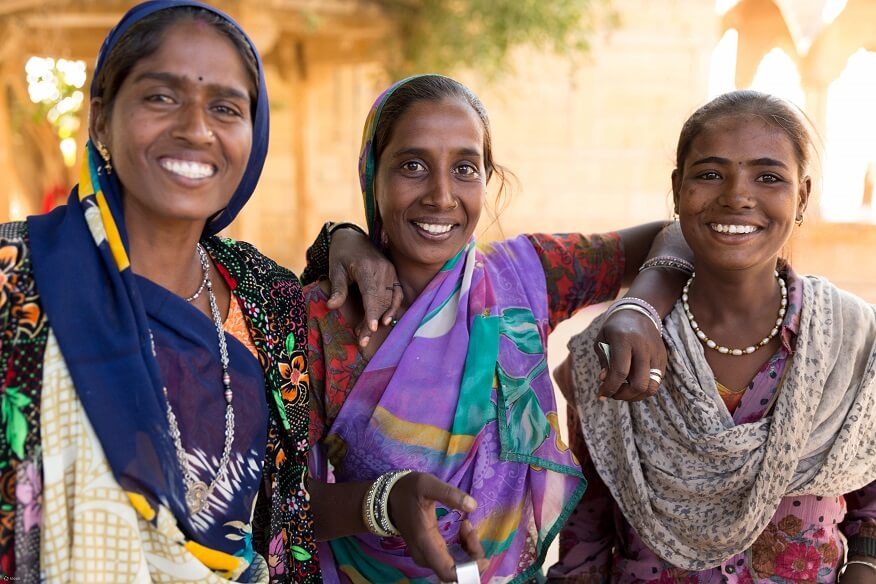
Ankita Valecha – Senior Communications Executive, Sambodhi
